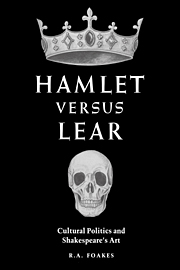Summary
It was only after this book was completed that Hugh Grady's The Modernist Shakespeare (Oxford University Press, 1991) became available to me. This general account of the shift from the new criticism to post-modernism in Shakespeare studies considers the impact of deconstruction, of the new historicism and cultural materialism, and of feminism in considerable detail. It includes a section on ‘Postmodernist Aesthetics’, pp. 204–11, which describes what he sees as the two major characteristics of ‘contemporary Postmodernist aesthetics’ as ‘the abandonment of organic unity as an aesthetic value and the overthrow of a series of formerly privileged hierarchical oppositions through a Postmodernist anti-hierarchical impulse’ (p. 207). His emphasis is thus on the relinquishment of outmoded aesthetic principles rather than on any replacement for them. He says that the ‘end of the assumption of the art-work's organic unity’ has been decisive in ‘bringing about a basic change in how we read Shakespeare’ (p. 210), sliding back from aesthetic questions to ways of reading or interpreting the plays. His book thus tends to confirm my sense that the effect of post-modernism (or more specifically, post-structuralist criticism, my main concern) on literary studies has been to turn away from aesthetic issues in what he calls with some reason ‘an anti-aesthetic Postmodernist age’ (p. 218).
- Type
- Chapter
- Information
- Hamlet versus LearCultural Politics and Shakespeare's Art, pp. ix - xPublisher: Cambridge University PressPrint publication year: 1993



